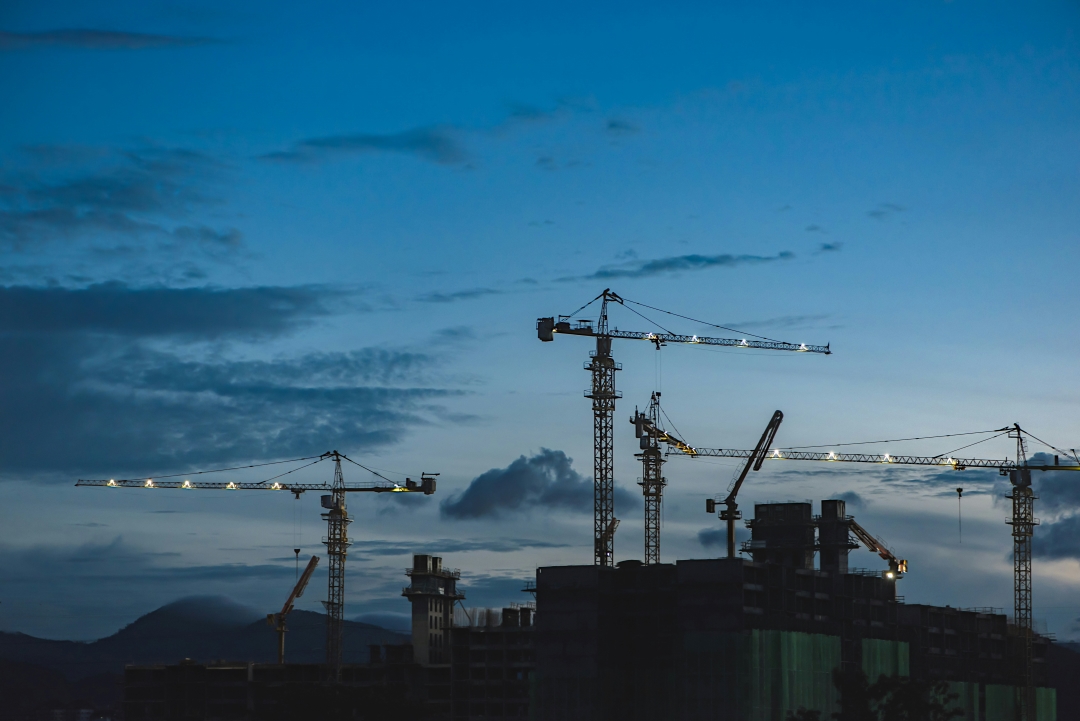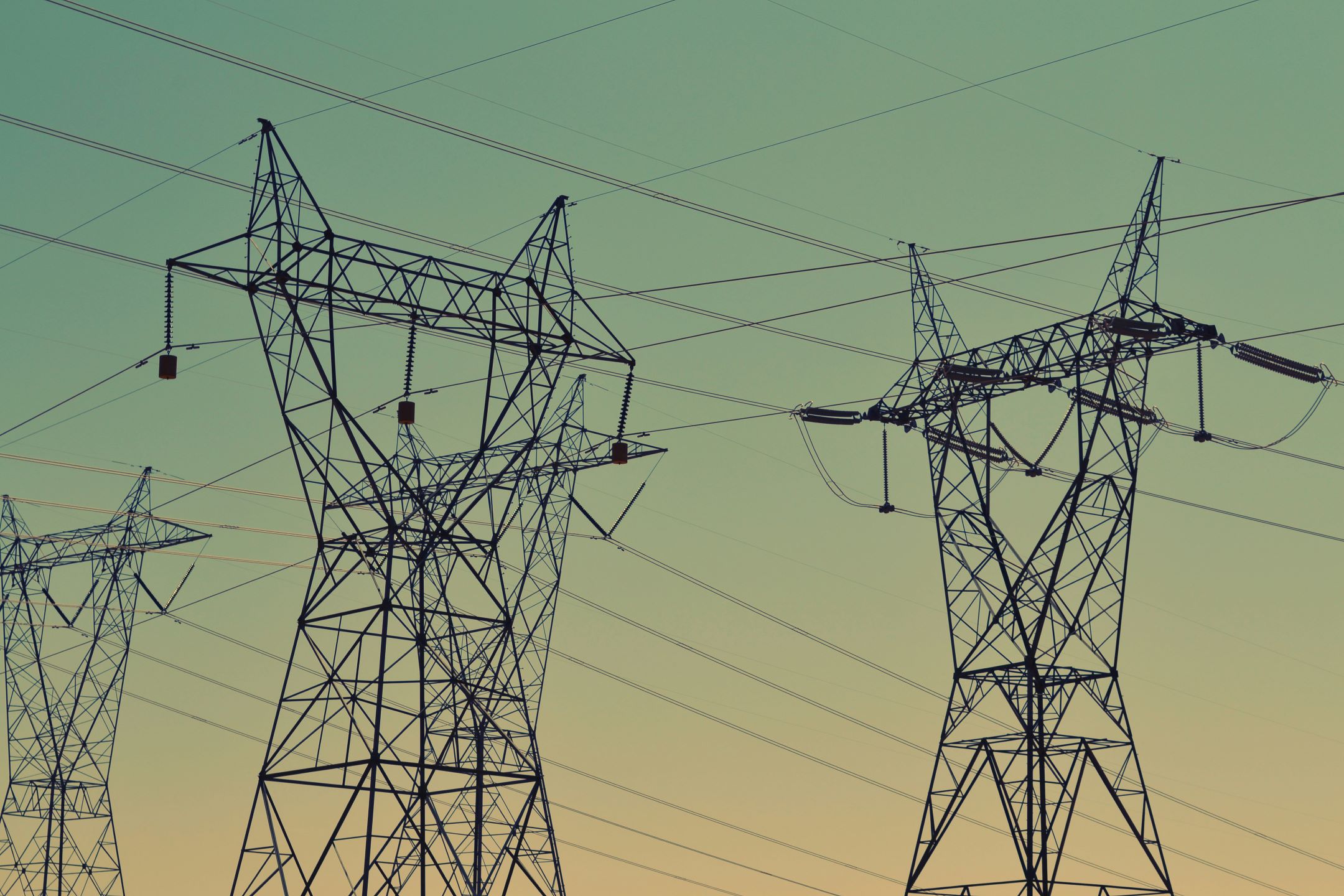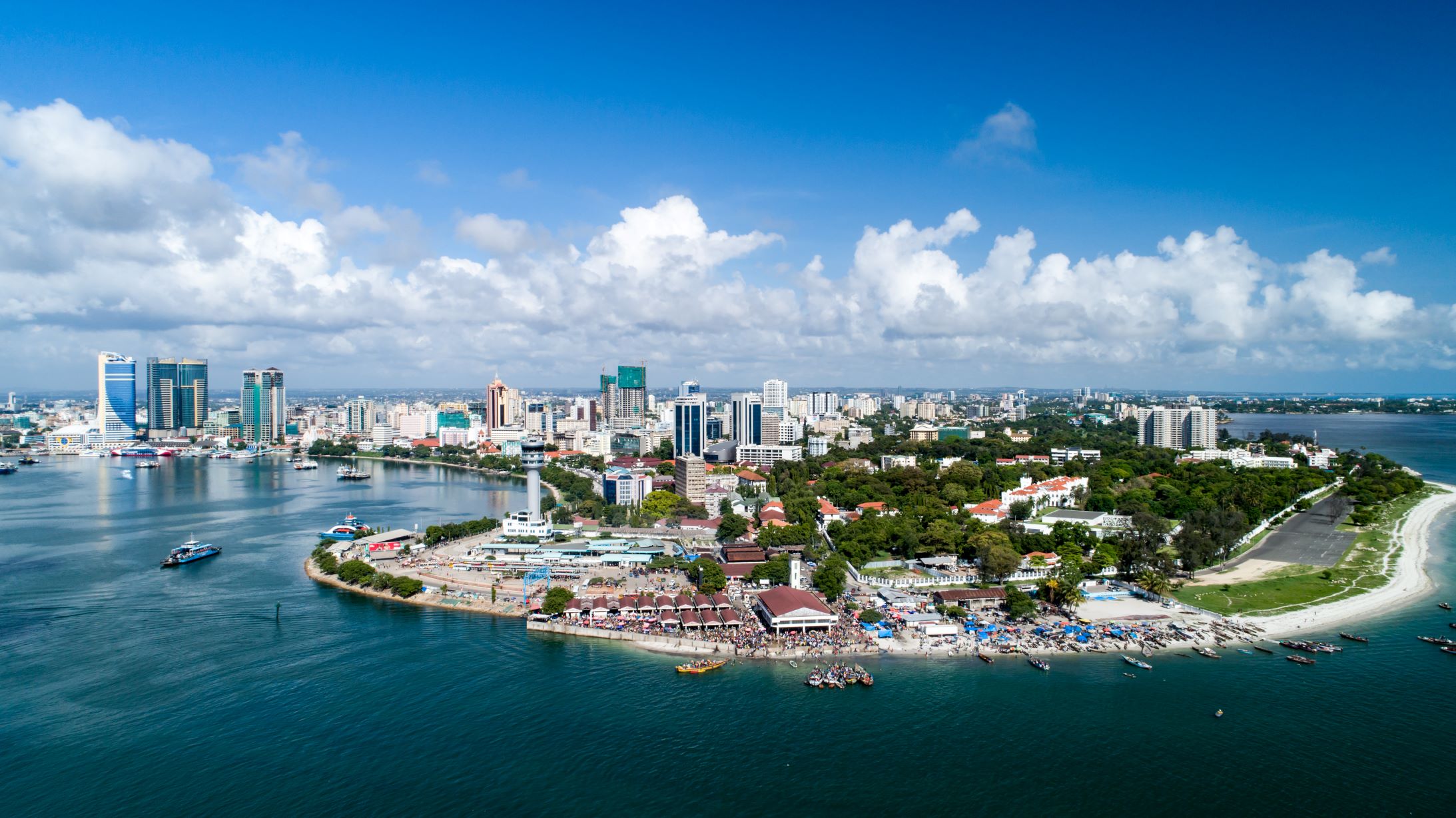Africa
Africa Investment Forum 2022 Draws USD 31 Billion in Investor Interest
The recently-concluded Africa Investment Forum Market Days – the continent’s premier investment platform – has drawn USD 31 billion in investment interest from African and global investors. Combined with USD 32.8 billion from the rescheduled 2021 Africa Investment Forum Market Days – which took place as virtual boardrooms in March this year – the forum has mobilised a total of USD 63.8 billion of investment interest. The three-day event, held in the Ivorian commercial capital, Abidjan, attracted the participation of several African heads of state and government. The leaders chaired boardrooms and led transactions with potential investors. This year’s Market Days event – the third since 2018 – took place under the theme of Building Economic Resilience through Sustainable Investments. It was held amid global economic challenges compounded by climate change’s impacts, the COVID-19 pandemic, and the Russia-Ukraine war. The event showcased the Africa Investment Forum’s founding partners’ joint resolve to help unleash Africa’s investment potential in such critical sectors as infrastructure, agriculture, energy, education, the creative industries, sports, and transactions that champion women entrepreneurs.
Source: African Development Bank
Africa
OPEC Fund and AfDB Group Increase Cooperation to Promote Sustainable Development in Africa
The Organisation of the Petroleum Exporting Countries (OPEC) Fund for International Development and the African Development Bank (AfDB) Group have signed a memorandum of understanding (MoU) to expand their partnership to support sustainable economic and social development in Africa. The agreement, signed at the 27th United Nations Climate Change Conference (COP27) in Sharm El-Sheikh, Egypt, on 8 November, sets the scope for further strategic and operational cooperation through co-financing of public and private sector projects, joint diagnostic and analytical work, and sharing of knowledge and best practices. The OPEC Fund and the AfDB Group have been partners since 1976. They have co-financed nearly 90 projects in the energy, transport and water sectors, with more than USD 1 billion of OPEC Fund contribution for over USD 15 billion of the total project value. AfDB president Dr Akinwumi Adesina said, “we are pleased to re-dynamise the partnership between the AfDB and the OPEC Fund for International Development. Our two institutions focus on improving people’s lives, and there is a strong alignment between our approaches. The signing of this MoU will strengthen and deepen our cooperation even further.”
Source: African Development Bank
Ethiopia
Addis Ababa Ranks Second as World’s Best Location to Set up Data Center
The latest fDi Benchmark study puts Addis Ababa second only to Beijing as the world’s most attractive location to set up data centres. The study benchmarks the 100 cities based on fDi Intelligence proprietary data and models to find those with the best cost/quality profile. The model allocated 75 percent weight to quality factors and the remaining 25 percent to cost factors to rank 100 cities that have received the highest number of FDI projects between January 2003 and June 2022. Beijing is the world’s best location to set up a data centre, followed by Addis Ababa and London, the fDi Benchmark study reveals. Unlike Beijing, second-placed Addis Ababa has capitalised on its excellent cost/quality profile to attract FDI in data centres. The government’s move to liberalise the telecommunications sector spurred the FDI flow. Last January, Safaricom, which won a newly issued mobile telecom license in 2021, announced plans to invest USD 100 million to establish its first data centre in Addis Ababa to cater to its growing operations.
Source: Ethiopia Monitor
Morocco
Morocco Exceeds Expectations in Renewables Market Attractiveness Index
Despite being a traditional energy import market, Morocco has worked on building competitive renewable energy infrastructure, which contributed to boosting the attractiveness of the domestic market among foreign investors. This year, consulting firm EY ranked Morocco 19th globally in its renewable energy country attractiveness index (RECAI), behind larger economies such as the US, China, Germany, the UK, France, Australia, India, and Spain. Despite Morocco’s relatively low GDP, estimated at USD 133 billion in 2021, according to the World Bank, the country has exceeded expectations by developing large-scale renewables pipelines to serve domestic and foreign demand for clean energy. According to EY, Morocco ranked first in the world in the normalised RECAI ranking, which assesses markets’ performance by their economic size (GDP). Morocco outperformed Greece, Denmark, Jordan, Chile, Ireland, and Australia in the ranking in addition to the world’s most attractive market for renewable investments, the United States, which placed 31st behind Brazil and China.
Source: Morocco World News
Mozambique
Mozambique Starts to Export Liquefied Natural Gas through Its FLNG Project
The Mozambican government recently announced the start of the export of Liquefied Natural Gas (LNG) from Mozambique. Recently, the oil tanker British Sponsor left Mozambican territorial waters carrying the first LNG cargo produced by the Coral South Floating Liquefied Natural Gas (FLNG) project in the country’s north. This FLNG project is Africa’s largest and the second-largest in the world. Coral South FLNG is the pioneering part of Mozambique’s Area 4 mega gas project, a joint venture bringing together the Italian ENI, ExxonMobil of the U.S., China’s CNPC, Mozambican ENH, the Galp from Portugal and the Korean KOGAS. Integrating the world’s most cutting-edge deep-sea LNG technology, Coral South FLNG contains a floating production platform installed 80 kilometres offshore Mozambique in the southern part of Area 4 of the Rovuma Basin. It has a production capacity of 3.4 million tonnes of LNG per year from wells located in 2,000-meter water depth with a design life of 25 years.
Source: Xinhua
Nigeria
Mobile Services Add USD 140 Billion to Nigeria, other SSA Economies
In 2021, mobile technologies and services generated around eight percent of the Gross Domestic Product (GDP) in Nigeria and other sub-Saharan Africa (SSA) countries, a contribution that amounted to almost USD 140 billion of economic value added in 2021. The mobile ecosystem also supported more than 3.2 million jobs (directly and indirectly). It made a substantial contribution to the funding of the public sector, with USD 16 billion raised through taxes on the sector. The Mobile Economy sub-Saharan Africa report 2022, a report by the Global System for Mobile telecommunications Association (GSMA), disclosed that by 2025 mobile services contribution will grow by USD 65 billion to almost USD 155 billion. It will be as a result of the countries in the region increasingly benefiting from the improvements in productivity and efficiency brought about by the increased take-up of mobile services.
Source: The Guardian
Tanzania
Tanzania to Sign HGA for USD 30 Billion LPG Project in December
Tanzania is expected to sign a host government agreement (HGA) for the USD 30 billion Liquefied Natural Gas (LNG) project with investors in December this year, the Minister for Energy, January Makamba, has said. According to Thomson Reuters, HGA is an agreement between a foreign investor and a local or host government governing the rights and obligations of the foreign investor and the host government concerning the development, construction, and operation of a project by the foreign investor. Mr Makamba revealed recently at a launching ceremony of the macroeconomic report of the LNG in Dar es Salaam and added that negotiations with investors are going on well. Stanbic Bank has prepared the report. “We’re getting there. We have tremendous confidence we will sign in December,” said the Minister at the report’s launch, which shows the LNG project will have enormous financial and economic benefits to the nation.
Source: Egypt Today
South Africa
South Africa Sets Sights on USD 250 Billion Investment in Hydrogen Sector
South Africa set its sights on attracting as much as ZAR 4.33 trillion (approx. USD 250 billion) into its nascent green hydrogen industry by 2050 to take advantage of abundant solar and wind energy sources. The industry could create 1.4 million jobs and generate as much as USD 30 billion in annual revenue by that year, according to Masopha Moshoeshoe, a green economy specialist in the presidency’s investment and infrastructure office. Green hydrogen, made by splitting water using renewable energy, is one of three ways SA aims to shift its economy away from relying on coal, which accounts for more than 80 percent of its electricity. The other ways are developing an electric vehicle industry and shifting power production to wind and solar power. The plan, included in a presentation by Moshoeshoe at the COP27 international climate conference in Egypt, would involve SA exporting as much as 8 million tonnes of the clean-burning fuel and its derivatives by 2050 and satisfying local demand of 2 million to 5 million tonnes, he said.
Source: Bloomberg
Reports
World Bank Annual Report
The World Bank is acting quickly to help countries adapt to a changing world as they address crises. It provides comprehensive support through data and analysis, policy advice, responsive financing, and convening power. This effort is helping countries expand access to COVID-19 vaccines; strengthen health systems; enhance social protection; address the learning crisis; work toward debt sustainability; build greener and more resilient infrastructure; invest in cleaner and more diverse energy sources; reduce gender gaps; combat fragility, conflict, and violence; and mitigate and adapt to climate change. These efforts are strengthened by a wide range of partnerships: with other multilateral institutions, UN agencies, nongovernmental organisations, civil society, academia, and the private sector. Through these engagements, countries can leverage World Bank’s comparative advantages, exchange knowledge and best practices, scale up financing, and expand their reach in the most fragile and inaccessible areas. World Bank’s partnerships have played a crucial role in combating the pandemic and are helping countries address the far-reaching impacts of the Russian invasion of Ukraine, including greater food insecurity.
Click here to download the report
McKinsey & Company | Reshaping Retail Banks: Enhancing Banking for the Next Digital Age
Retail banks have experienced respectable growth as the pandemic has abated, and it is tempting to declare that global retail banking is healthy. However, a disaggregated view reveals the unsustainable economics of the universal banking model, in which an institution offers a full range of financial services, from daily banking (deposit accounts, payments, and credit cards) to more complex lending, wealth management, and even insurance. To supercharge their financial performance and defend market share, banks will need to target profit pools in specific businesses where they can define and deliver a value proposition that can win in our new digital age. While much is said of the threat from fintech and Big Tech, incumbent banks will continue to lead in retail banking. However, banks running the old playbook will not survive; the new winners will operate like tech companies with advanced data capabilities, a cutting-edge tech stack, and an agile operating model.
Click here to download the report.
IRENA | Energy Transition Support to Strengthen Climate Action 2022
The overall trend in countries’ climate ambitions is positive, indicating that energy transition plays a key role in accelerating climate action. Full implementation of the latest climate commitments would bring the world closer to achieving the Paris Agreement’s goal of keeping the average global temperature rise below 1.5 degrees Celsius (°C). However, there is still a pressing need to raise the ambition of climate action and accelerate the global energy transition to achieve net zero greenhouse gas emissions by 2050. IRENA’s World Energy Transitions Outlook (WETO) 2022 underscores the urgency of accelerating the global energy transition towards cleaner and more sustainable options for energy generation (IRENA, 2022a). The emissions gap between countries’ climate commitments – such as the NDCs and net-zero emission targets – and the efforts necessary to achieve the 1.5°C climate goal by 2050 is estimated to be 20 gigatonnes. Scaling up renewables and end-use electrification, together with accelerated energy efficiency measures, are essential to reduce emissions. Successful medium- and long-term energy transition plans and strategies should be supported by short-term interventions.
Click here to download the report.
Oxford Economics Africa | Africa Risk-Reward Index 2022
Control Risks and Oxford Economics Africa seventh edition of the Africa Risk-Reward Index illustrates the evolution of the investment landscape in major African markets and provides a grounded, longer-term outlook of key trends shaping investment in these economies. It also offers a comparative snapshot of market opportunities and risks across the continent, which will allows different organisations to develop an informed strategy for growing their business or investing in Africa. The impacts of a global economic crisis triggered by the pandemic, climate change, and conflict in Ukraine have without doubt exacerbated global uncertainty regarding growth opportunities and political stability across Africa. But in the long term, these geopolitical shocks may turn out to be the very factors that redefine Africa’s relationship with the rest of the world and its role in the world economy. In this year’s edition, Control Risks and Oxford Economics highlight the three main themes that will likely shape this transition period for the continent, as well as the business opportunities and risks that this will present.


